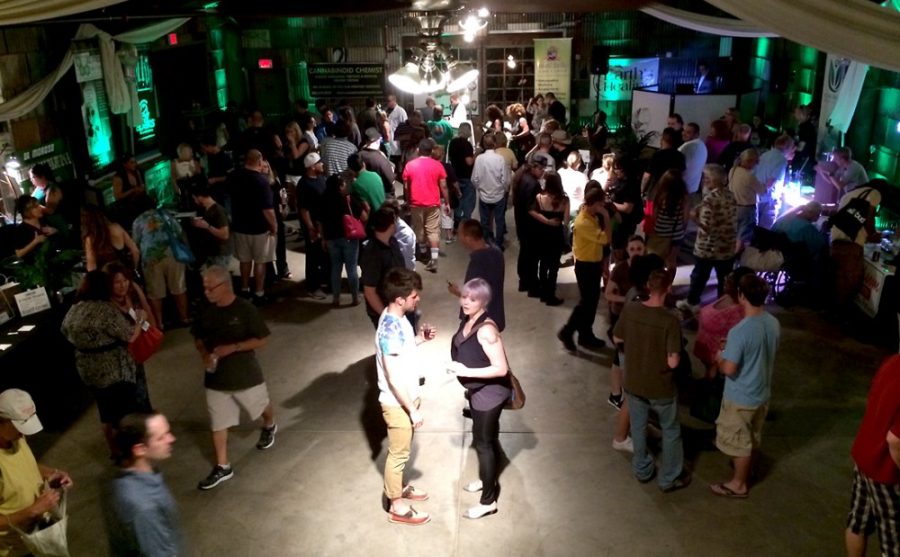The only drug available at MMJ for Tucson: A Medical Marijuana Resource Event is that of knowledge.
More than 20 local and national medical marijuana vendors were invited by Earth’s Healing not to sell, but to educate others on new developments in marijuana research this past Saturday. Making its debut at the Whistle Stop Depot on west Fifth Street, this purely informational event was the first of its kind to be held in Tucson.
MMJ for Tucson sought to inform the general public of the advantages of using medical marijuana as an alternative to treating post-traumatic stress disorder.
“We’re trying to reach a lot of new patients and people who have no experience with medical marijuana,” said a spokesman of Earth’s Healing, which is a local medical marijuana treatment center.
A large portion of the clientele at Earth’s Healing comprised of veterans with PTSD, according to the company’s spokesman. The treatment center offers discounts to these veterans, and sees them using medical marijuana for chronic pain and other symptoms.
The convention comes just over a month after the Arizona Department of Health Services approved PTSD as an illness that can be treated with medical marijuana on July 9. This new law will not take effect until January 2015.
“It’s about time they were included,” said Cathy Mead, owner of Cathy’s Compassion Center based in Cochise. Mead says that she services a lot of veterans, and that this new legislation by the ADHS will be able to help many people with PTSD.
Mead says that most of her patients belong to the senior community, and are from 65-70 years of age.
“I have a lot of cancer centers that are now referring their patients to me because I am a cancer survivor myself,” Mead added.
Seniors who seek out medical marijuana as an alternative treatment usually do so to avoid the complex, detrimental side effects of some prescription medications.
Exactly how these ailments are alleviated by medical marijuana is not entirely defined by medical studies, though this is not due to lack of interest in the subject. The Drug Enforcement Administration has marijuana classified as a Schedule I drug, meaning that it is federally categorized with drugs like Ecstasy and heroin.
This classification has hindered the possibility for researchers to look further into medical marijuana’s place in medical treatment. One of the UA’s former researchers, Dr. Sue Sisley, lost her job researching the effects of marijuana on veterans who suffer from PTSD.
Sisley said that the university did not like the idea of veterans smoking and vaporizing marijuana on its campus, and so it proceeded to shut down her research after four years of preparation.
The ADHS originally rejected the proposal for classifying PTSD as an illness treatable by medical marijuana in 2012, on the grounds that anecdotal testimonies regarding the success of medical marijuana on PTSD patients could not amount to more than a placebo effect in terms of scientific evidence.
Coincidentally, those same testimonies helped drive much of this year’s legislative change.
During the convention, speakers prompted attendees to take part in legislative discussion on the formation of laws and regulations governing local dispensaries. Methods of distribution, hours of operation and the limitations placed on infusion kitchens will be up for community critique on Tuesday during the mayor and council meeting.
The potential changes that are up for debate would extend dispensaries’ legal business hours, increase legal commercial space and allow dispensaries to deliver their medication. If approved at the meeting, these changes would take effect on Sept. 10.
—Follow Ian Martella @DailyWildcat









